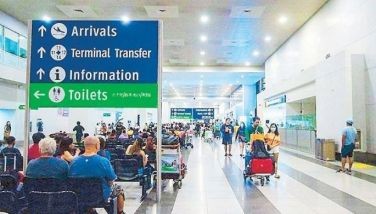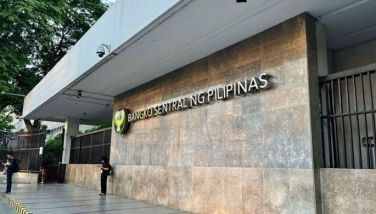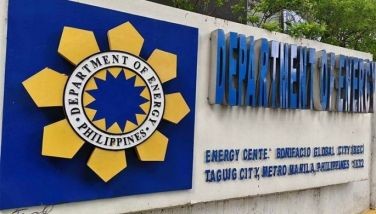PIDS urges regulatory reforms to increase trade in services
MANILA, Philippines - A government think tank has urged the Aquino administration to pursue regulatory reforms that can increase trade in services such as the removal of infrastructure bottlenecks in transportation, communications, energy, water and other services.
In a recent report, the Philippine Institute for Development Studies (PIDS) said the Philippines must take advantage of the post-crisis investment and trade opportunities.
“That includes rising inter-regional demand, booming trade services and the need to capture first-mover advantage in climate-smart goods,” Rafaelita Aldaba, economist and PIDS senior research fellow, said in the report co-written by the United Nations Economic and Social Commission for Asia and the Pacific (UNESCO).
Aldaba said the Asia Pacific region is expected to have high intra- and inter-regional trade brought about by growing population and rising incomes in the region. The country should utilize its untapped potentials in service trade like in tourism, information technology and construction.
“Hence, the government should pursue regulatory reforms that can increase trade in services and remove infrastructure bottlenecks,” she said.
In a forum held along with the release of the report, trade experts identified a number of issues that the government should address in facilitating trade and investments such as customs modernization, which will bring efficiency and potentially curb graft in customs administration.
They said the country should improve its existing regional trade agreements as well as initiate new accords particularly in the areas of transport facilitation and establishment of regional trade protocols and standards.
“The country, for example, can share with neighboring countries its experience with the establishment of the Philippine Economic Zone Authority (PEZA), which is an internationally acclaimed program for its positive effects on the economy,” the PIDS economist said.
Another important issue is the high cost of doing business, particularly of electricity, that turns off investors. The country now has the highest industrial electricity cost, even higher than the cost in developed countries like Japan. Experts suggest that the government should conduct detailed analysis of the components of generation and distribution costs and assess efficiency of transmission to reduce system losses.
Moreover, prospective investors are also driven away by the high cost and complicated process of setting up a business in the country. Hence, the government should institute reforms and new policies such as introducing one-stop shops for business registration.
Aldaba further expressed optimism the rise of environmentalism would boost trade and investment prospects for the country.
“The country should utilize new opportunities in climate-smart goods and technologies whose trade and investment potential is estimated to be at $30 billion,” she added in the report.
Although Korea and Japan are the regional leaders in this budding industry, other small countries have shown potential, including the Philippines.
However, a warning was aired against the looming threat of protectionism since tougher competition in the region might trigger discriminatory protectionist measures like the use of non-tariff measures such as green clauses.
Last year, trade picked up 26 percent in exports and 21 percent in imports. This made Philippine trade performance significantly higher than the Asia Pacific region, which registered average export growth of 17.3 percent and import growth of 15.8 percent in 2010.
- Latest
- Trending




























